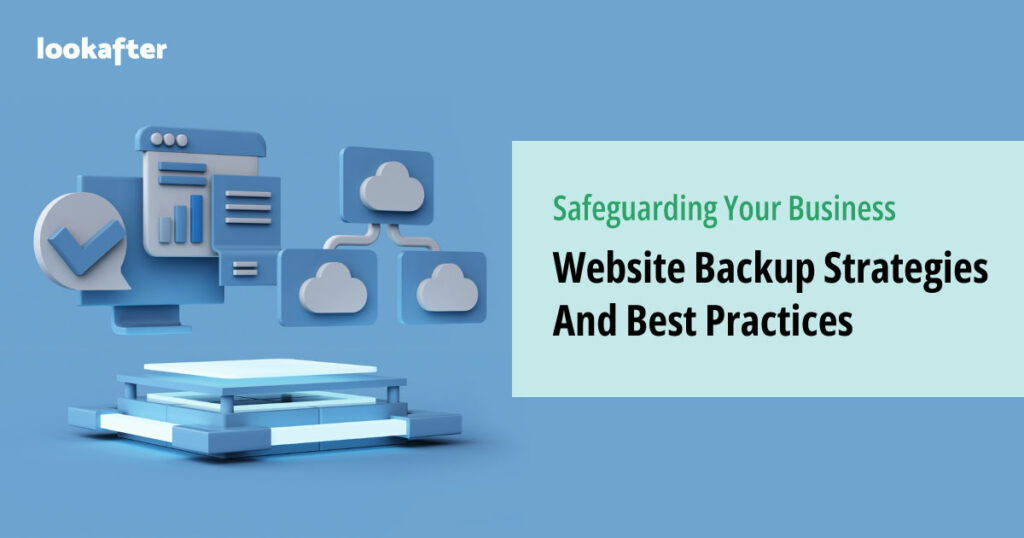Home > Empowering Tips > Website Backup Strategies and Best Practices

Your website serves as your business’s primary storefront, often acting as the first point of contact for potential customers. However, with cyber threats looming and technological mishaps a possibility, ensuring the safety and integrity of your website is crucial. One critical aspect of this is implementing effective website backup strategies and best practices. In this guide, we’ll explore essential strategies to protect your business’s digital assets and ensure peace of mind. Whether you’re a small business owner or a seasoned entrepreneur, understanding and implementing website backup best practices is key to fortifying your online presence and safeguarding your business’s future.
Understanding Website Backups
Before diving into backup strategies, it’s essential to grasp the concept of website backups. Essentially, a website backup is a copy of all your website’s files, databases, and content stored in a secure location. This backup serves as a safety net, allowing you to restore your website to a previous state in case of data loss, cyberattacks, or technical failures.
Importance of Regular Backups
Imagine waking up one day to find your website compromised or data irreversibly lost. Without a recent backup, recovering your website could be a back-breaking task, if not impossible. That’s why regular backups are crucial. Aim to schedule backups at least once a week, if not more frequently, depending on the frequency of updates and changes to your website.
Choosing the Right Backup Solution
When it comes to website backup solutions, you have a variety of options: from manual backups to automated cloud-based services. For websites built on platforms like WordPress, Joomla or other content management systems (CMS), utilizing backup plugins can streamline the process and offer added convenience. These plugins often provide automated backup scheduling, one-click restoration, and integration with cloud storage services.
For websites not built on a CMS or those preferring a more hands-on approach, manual backups are a viable option. This involves manually downloading and storing copies of your website’s files and databases at regular intervals. While this method requires more effort, it provides greater flexibility and control over the backup process.
Implementing a Multi-Layered Approach
Relying solely on one backup solution may leave your website vulnerable. Instead, consider adopting a multi-layered approach to backups. This could involve a combination of onsite backups (stored on your web server), offsite backups (stored on remote servers or cloud storage), and even offline backups (stored on physical drives). By diversifying your backup strategy, you enhance redundancy and resilience, reducing the risk of data loss.
Testing Your Backups
Backing up your website is only half the battle – ensuring that your backups are viable is equally important. Regularly test your backups by simulating a restoration process. This allows you to identify any potential issues or shortcomings in your backup strategy and address them proactively. After all, there’s little use in having backups if they fail to restore your website when needed.
Staying Vigilant and Proactive
In the ever-evolving landscape of cybersecurity threats, staying vigilant is paramount. Keep pace with emerging threats and trends in website security, and regularly review and update your backup strategy accordingly. Additionally, be proactive in addressing any vulnerabilities or weaknesses in your website’s infrastructure to minimize the risk of data loss or breaches.
Beyond Backups: Best Practices for Website Security
While backups are vital, a comprehensive website security strategy goes hand-in-hand with data protection. Here are some additional best practices:
- Regular Security Updates: Ensure your website software, plugins, and themes are updated with the latest security patches to address vulnerabilities.
- Strong Passwords & User Authentication: Implement strong password policies and multi-factor authentication to prevent unauthorized access.
- Vulnerability Scans: Regularly conduct vulnerability scans to identify and address potential security weaknesses in your website.
Wrapping Up
By implementing effective backup strategies and best practices, non-technical professionals can protect their online assets and ensure business continuity in the face of adversity. Remember, it’s not a matter of if, but when disaster strikes – and having robust backups in place can mean the difference between a minor setback and a catastrophic loss. So, take the necessary steps today to fortify your website’s defences and safeguard your business’s digital presence for the future.
If you’re uncertain about the best approach for your website or need assistance in setting up backup solutions, our team is here to help. We offer Website Backup Services that encompass comprehensive backup solutions and swift recovery processes. Contact us today to safeguard your business’s digital assets and enjoy peace of mind knowing that your website is protected against the unforeseen.